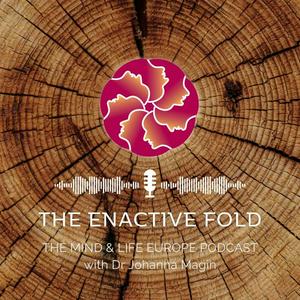[A note to listeners] We'd like to ask for your support in making the podcast more visible for future listeners: if you're enjoying these long-form conversations and would like to hear more of them, please take a minute to rate, review, follow, and download episodes of the podcast on any of the major platforms. Much as we are loathe to participate in the algorithm economy, we recognise that this is one of the main ways of spreading the word, allowing listeners to find us who might not otherwise happen upon our work. And if you have recommendations for future guests, we'd invite you to write to us at:
[email protected]. Thank you all so much for your continued support and enthusiasm!
Himali Singh Soin and David Soin Tappeser are forces to behold. As they describe themselves, they are “an artist duo whose work combines poetry and music to conjure speculative futures and multiverses.” Their collective, which you’ll hear more about in our conversation, is “Hylozoic/Desires,” or H/D. H/D “aspires toward a flat ontological ether in which all forms of life—stone, spirit, machine or human—are equal. They skew the linear imagination of time and space to produce divergences that elicit critical wonder. H/D’s research orbits around (non)place and histories of migration, transnationalism and environmental cosmism to learn from the multiple materialities of contemporary existence. They are concerned with the (poly)rhythms of love and the bea(s)t of belonging. Hylozoic/Desires use metaphor as an event, as a force of attraction that holds otherwise distant entities together.”
Although we didn’t have the benefit of being immersed in the materiality of their art, speaking to Himali and David nonetheless revealed the dizzying scope and depth of their art-making, and the ethical-epistemological questions that drive much of their work. One could call their work multimodal and polychronological, a collaboration of disciplines and a commingling of scales; but perhaps more to the point, it strikes one as eminently enactive. Through the unusual forms it inhabits - whether performance, installation, or both - it manages to probe such archetypal matters as presence, love, doubt, mutuality, materiality, subjectivity, reenchantment, climate grief, futurity, anticoloniality, truth, and the archive—but in ways that subtly upend our usual affordances and habits of mind. Our conversation was similarly wide-ranging: we discussed how a serious consideration of something as simple as salt reveals unbidden layers of colonial history and power relations; how “sitting with the drift,” or embracing illegibility and doubt, can constitute viable epistemologies; how archival history is never really a depoliticized affair; how past, present, and future can work in ways that are completely nonlinear; how love can be a powerful technology of knowing that helps us think about regenerative futures; and how art can occasion important perceptual shifts, when other modes of communication fail. The conversation was nothing short of an anthem for the necessity of art in times such as these, and a speculative ode to futures we’ve yet to imagine.
Himali Singh Soin is a writer and artist based between London and Delhi. She uses metaphors from outer space and the natural environment to construct imaginary cosmologies of interferences and entanglements. In doing this, she thinks through ecological loss and the loss of home, seeking shelter somewhere in the radicality of love.
david soin tappeser is an artist, drummer and composer based between London and New Delhi. his practice explores socio-eco-spiritual-tempo-somatic dimensions of sound. his performances and compositions use rhythm as their primary medium. they explore intercultural entanglements, parallel histories and extra-human frames of reference while thinking about environmental destruction and sociopolitical fissures.
Full recordings of Subcontinenment are available here and here.
Hosted on Acast. See acast.com/privacy for more information.


